Scottish Women’s running grateful to those who held the torch
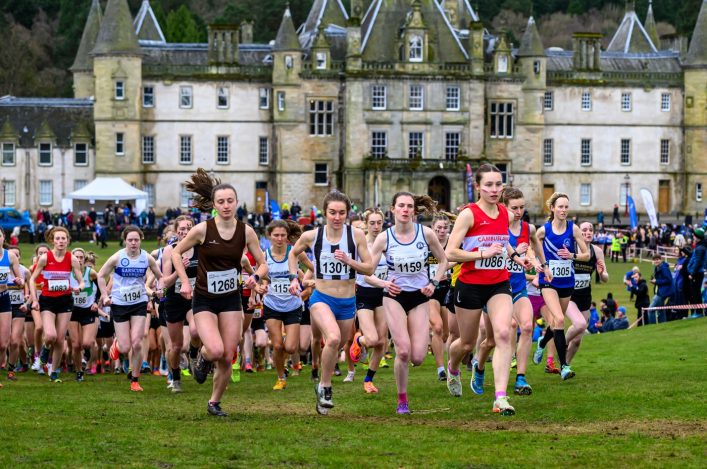
By Katy Barden
The passing of distance running icon Leslie Watson was a reminder that we all stand on the shoulders of giants.
Like Dale Greig before her – who had become one of the first women to run a marathon and set a women’s world best for the distance – Watson took the sport forward so that future generations could go further and faster.
A Scottish mile champion in 1966 and a multiple national cross country champion (twice narrowly defeating Greig), Watson went on to become a prolific marathon runner with a best of 2:44.18 in 1982 and over 60 marathon victories around the world.
The Maryhill Harrier also paved the way for women in ultra-distance events.
In 1979 she finished the first female in the London to Brighton race over 54 miles despite being an unofficial entrant due to women not being permitted. She defended her title in 1980, receiving a trophy and deserved recognition for the victory after organisers changed the rules to let women run.
At the peak of her career, she ran a 50 miles world best of 6:02:37 in Connecticut, United States.
‘If (Scottish marathon pioneer) Dale Greig broke through the glass ceiling keeping women out of marathon racing . . . then Leslie shattered it,’ stated the Scottish Distance Running History website.
Theirs wasn’t a story of performance alone, however. It was in equal measures a story of inspiration, participation and a love for the sport that has influenced generations of female endurance runners ever since.
It’s also a story that has been repeated, to varying extents, throughout the decades.
Olympian Freya Ross (née Murray) is ranked fourth in the Scottish all-time marathon rankings with a best of 2:28:10. As a young athlete, she was motivated by Scottish women who were competing at the highest level.
‘I really looked up to Yvonne Murray and Liz McColgan,’ says Freya.
‘I also looked up to people competing in the same age group, or the age group above me, trying to get closer to beating the likes of Dennise Smith, Colette Fagan, Susan Partridge and Sheila Fairweather.
‘I started running at a young age, so the athletes competing in the Olympics were inspiring but seemed very far removed from what I was trying to achieve (at the time). My aims grew as I got older.’
Freya Ross
Ross and Partridge were an exciting duo at their peak. Ross won the Scottish National Cross Country Championships six times out of seven between 2006 and 2012. Partridge won in 2008. Both raced for GB and NI at World and European Cross Country Championships.
Ross ran her marathon best in London (April 2012). Partridge ran her marathon best of 2:30:46 (eighth all-time) in London in April 2013.
Ross represented Team GB in the marathon at the Olympic Games in London 2012. Partridge represented GB and NI at the World Athletics Championships in Daegu 2011 and Moscow 2013.
Both athletes represented Scotland in the Commonwealth Games, Ross on the track in Delhi 2010, Partridge in the marathon in Melbourne 2006 and Glasgow 2014.
‘Susan and I were both coached by Steve Jones and trained together a few times in Boulder (Colorado),’ she explains.
‘I really enjoyed training together, we were pretty closely matched generally, but we had different strengths and weaknesses. Our good days and bad days didn’t always coincide so I think we spurred each other on.
‘Susan had a lot more experience in the marathon than me so it was good to get advice from someone who knew the event better than me.
‘I remember watching her on TV competing in the World Champs in Moscow, I was so happy for her to run so well in such difficult conditions (she finished 10th). I would have loved to have been competing with her at the Commonwealth Games in Glasgow.’
Before Ross and Partridge made waves, Kathy Butler and Hayley Haining – fifth and sixth in the Scottish all-time marathon rankings with bests of 2:28:39 (2006) and 2:29:18 (2008) respectively – were at the forefront of Scottish endurance running.
Ross recalls being on GB teams with Butler when she was still a junior and ‘bombarding her with questions.’ They later trained together when she was out in Boulder on training trips.
Steph Davis (photo by Mark Shearman)
Performances have moved on since then. Two-time Olympian Steph Twell, a former world junior 1500m champion and multiple medallist at European Cross Country Championships, broke the Scottish marathon record in 2019 with 2:26:40, while Steph Davis went third on the all-time rankings with 2:27:16 in 2021 (prior to representing Team GB at the Tokyo Olympic Games).
But progress is not limited to times. Women’s endurance running in Scotland has moved forward in other meaningful ways, too.
Ahead of February’s Lindsays National Cross Country Championships in Falkirk, it was confirmed that 2277 athletes were on the start list, the fifth largest entry in the event’s history.
Notably, that figure included 398 Senior women, a significant increase on the early 2000s when the number was consistently under 200.
Sandra Hardacre, East District Road and Cross Country commission Secretary, President of the East District Cross Country League, and a member of the Road Running and Cross Country Commission, says she believes the most significant changes include the number of races on the calendar – and in turn the opportunities available to women compared to the days of Greig and Leslie – and the move to equalise cross country race distances for men and women since 2017.
An increase in overall participation has had a substantial impact, too.
‘That’s one of the biggest things for me,’ says Sandra, who was a Scottish age-group cross country champion herself in 1975.
‘I think it’s becoming more about staying healthy. It’s about taking part, and it’s great that people are getting out there.’
And at the heart of it, perhaps that is what’s most special about endurance running; creating friendships, enhancing physical and mental health, and being motivated and inspired by others to achieve your goals.
‘There is great camaraderie at our club,’ says Ross.
‘I hardly ever even make it down to training sessions, but I still feel part of a group of like-minded people.
‘If you have people to train with, people to support you on the good days and bad days, and people who think being a runner is a positive normal thing, I think it makes it all the more plausible to achieve your goals, whether that’s being a professional athlete, being the best in Scotland, or being the best in your age group at your club.’
Looking to the future, both Hardacre and Ross believe that Eilish McColgan could transform how people view Scottish women’s marathon running. It’s an exciting prospect. Like those before her, McColgan has the opportunity – when the time is right – to take the sport forward.
Standing on the shoulders of the giants before her, she could mark the start of another decade of progression and participation.
+++
Tags: Features, Katy Barden
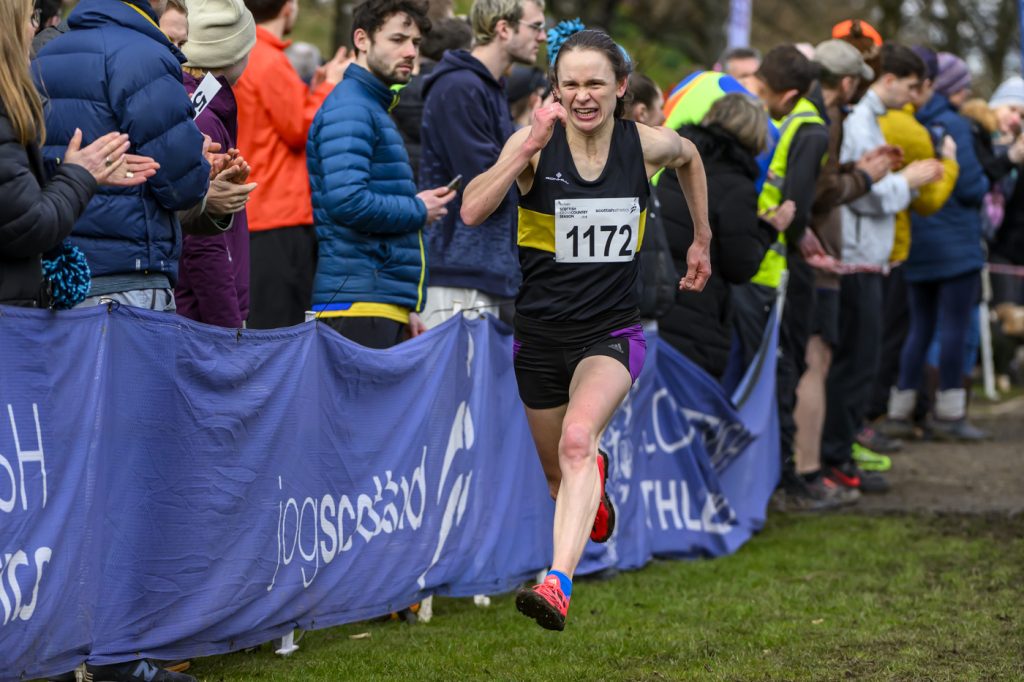
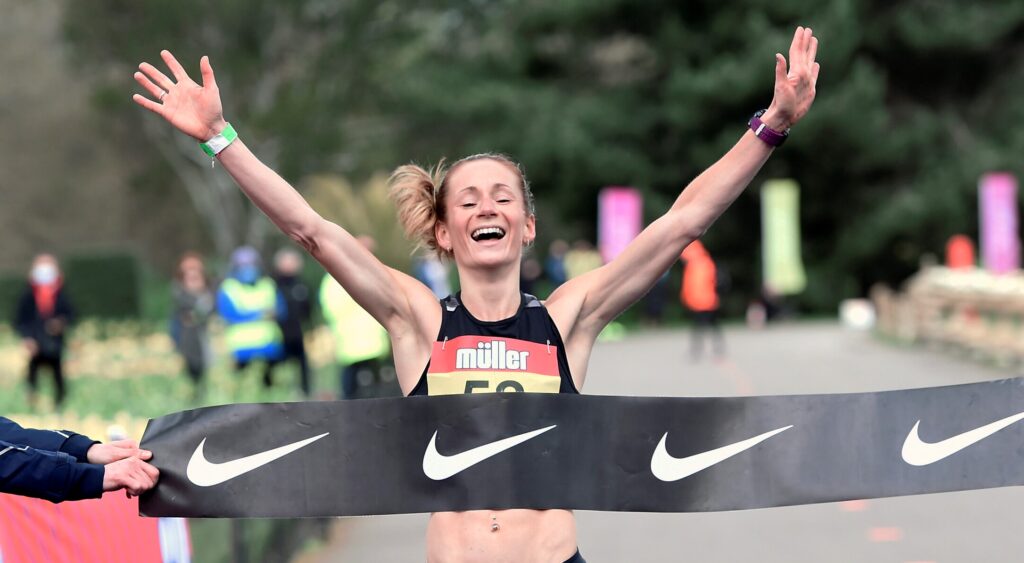
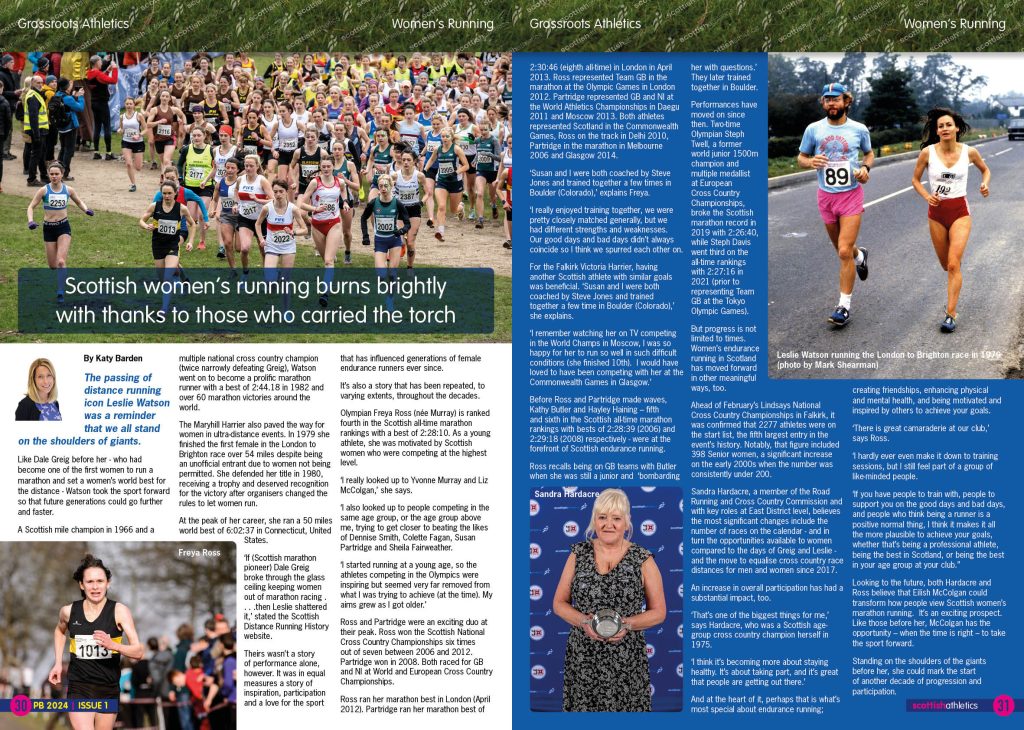
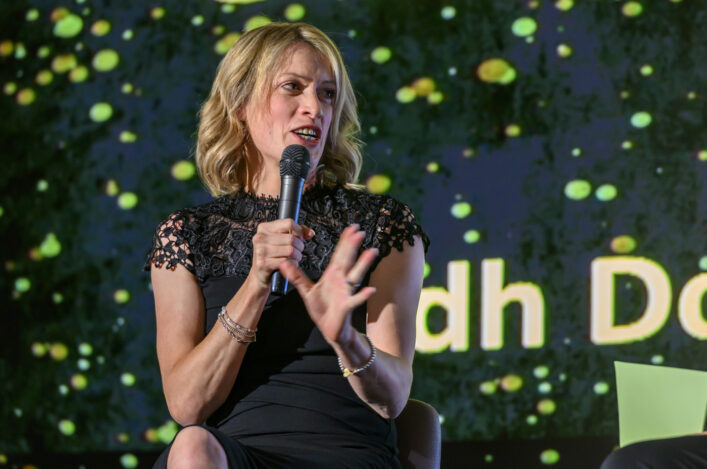
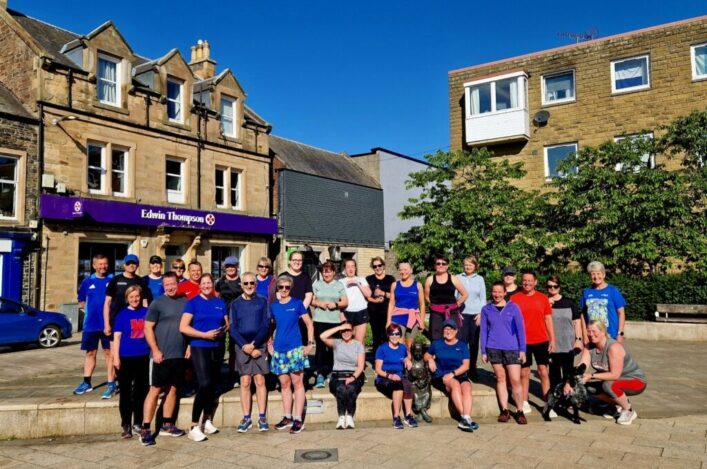
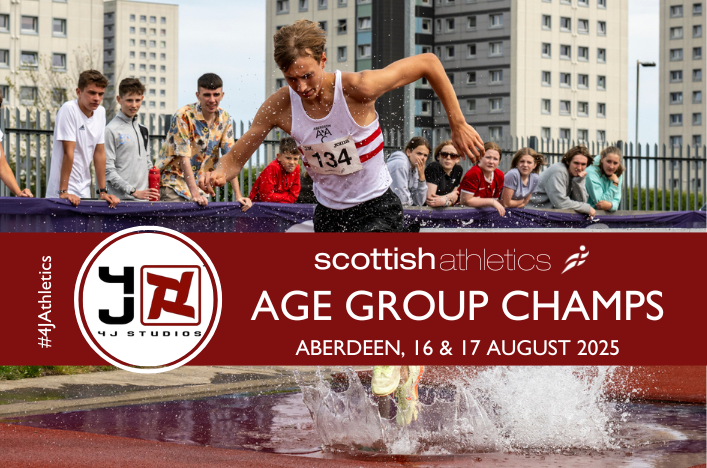
Latest Facebook update
Problem displaying Facebook posts. Backup cache in use.
Click to show error